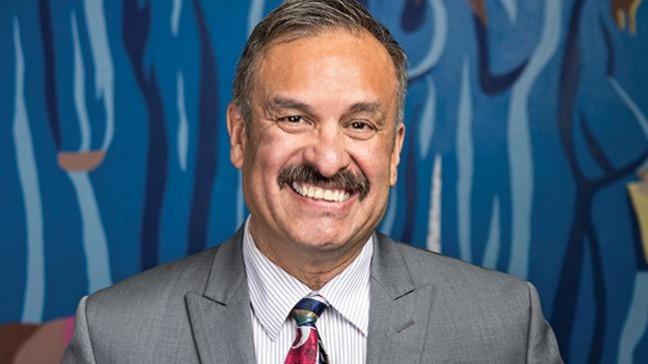Oscar Mireles, Madison’s fifth poet laureate, said poetry can be used in a variety of ways to address issues in the community.
“Sometimes with poetry, you can sum up complex issues and approach it in a way where it can reach people on a different level,” Mireles said.
Mireles was named the city’s first Hispanic poet laureate by Mayor Paul Soglin Jan. 15 and will serve a two-year term.
His duties as poet laureate include speaking at various events, selecting winning submissions to Madison Metro’s call for poetry, allocating funds raised by the John Tuschen Poet Laureate Memorial Fund and arranging for poets to read their work in front of the Madison city council once quarterly.
Mireles said one of his primary goals as poet laureate is to unite Madison’s poets and writers as one and better proliferate their craft in the community.
“One thing I want to do is bring the whole poetry community and writing community together to learn more about each other and support each other,” Mireles said. “I want to both bring poetry to the community and bring the community to poetry.”
Mireles first got involved in Madison’s poetry scene 22 years ago when he moved to the city to take a position as Omega School director.
Over the last two decades, Mireles has written and performed poetry avidly in Madison and edited three anthologies of poetry written on Latinos in Wisconsin titled “I Didn’t Know There Were Latinos in Wisconsin.”
“I’ve been involved for a long time trying to write poetry and support other poets,” Mireles said.
Mireles attributes much of his poetic nature to his upbringing, having grown up with 11 brothers and sisters. Growing up with so many siblings exposed him to many different individual perspectives on life and made him an unusually perceptive child, he said.
“Having so many siblings brings the world a lot closer than you like,” Mireles said. “You sort of live through their eyes and see things they’re exposed to if you’re open and watching and listening. You learn a lot about life.”
Mireles wrote his first poem while studying at University of Wisconsin-Oshkosh as an undergraduate. The poem, titled “Elvis Presley was Chicano,” expounded upon a poetic epiphany Mireles experienced at age seven while watching a televised Elvis Presley performance.
Watching Elvis on a black-and-white television set as a young boy, Mireles thought the man he was watching — though Caucasian — looked remarkably Hispanic. Mireles later remembered this epiphany when he was in college and wrote an imaginative poem likening Elvis to a typical Hispanic man, igniting a lifelong passion for verse with an emphasis on Hispanic-American life.
“Elvis was the first person I thought looked like me; he ended up being my first role model,” Mireles said. “So I thought, maybe Elvis was a Chicano but it wasn’t time for a Chicano superstar to be pelvis-ing around on the Ed Sullivan show.”
Mireles said one of the main purposes of poetry is to help people make sense of all the different perspectives and narratives at play in their lives.
All poets are searching for their own direction and identity in life, and poetry is a means of telling stories that would otherwise go untold, Mireles said.
“Part of our journey is if we don’t share our stories, no one will,” Mireles said. “We live in very interesting times, and we can either walk around as if nothing’s going on, or we can try to make sense of our world and use our words to make it a better place for all of us.”













